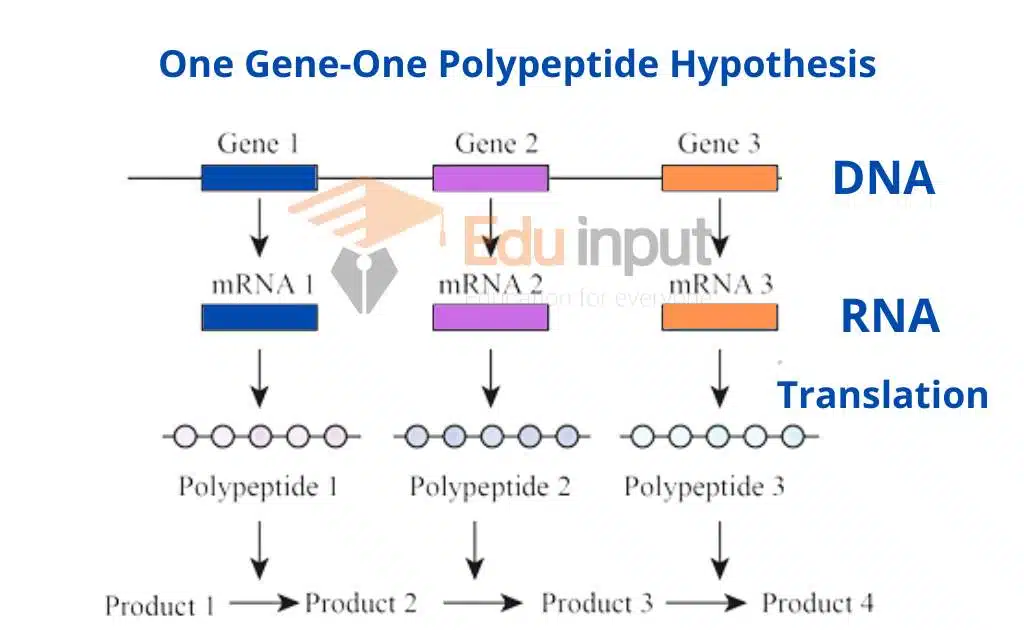One gene one polypeptide hypothesis
- One gene one polypeptide hypothesis is just a medication form of the well accepted theory i.e. One gene one enzyme hypothesis.
- This theory states that each gene is responsible for the synthesis of a single polypeptide.
- It was originally stated as the one gene-one enzyme hypothesis by the US geneticist George Beadle in 1945 but later modified when it was realized that genes also encoded non-enzyme proteins and individual polypeptide chains.
- It is now known that some genes code for various types of RNA involved in protein synthesis.
- In 1957, Ingram showed that some genes accounted for single polypeptide chains of a protein comprised of multiple chains.
- Subsequently, the idea was dubbed the one gene–one polypeptide hypothesis, after further investigation into the phenomena led scientists to conclude that genes actually specify protein products.
